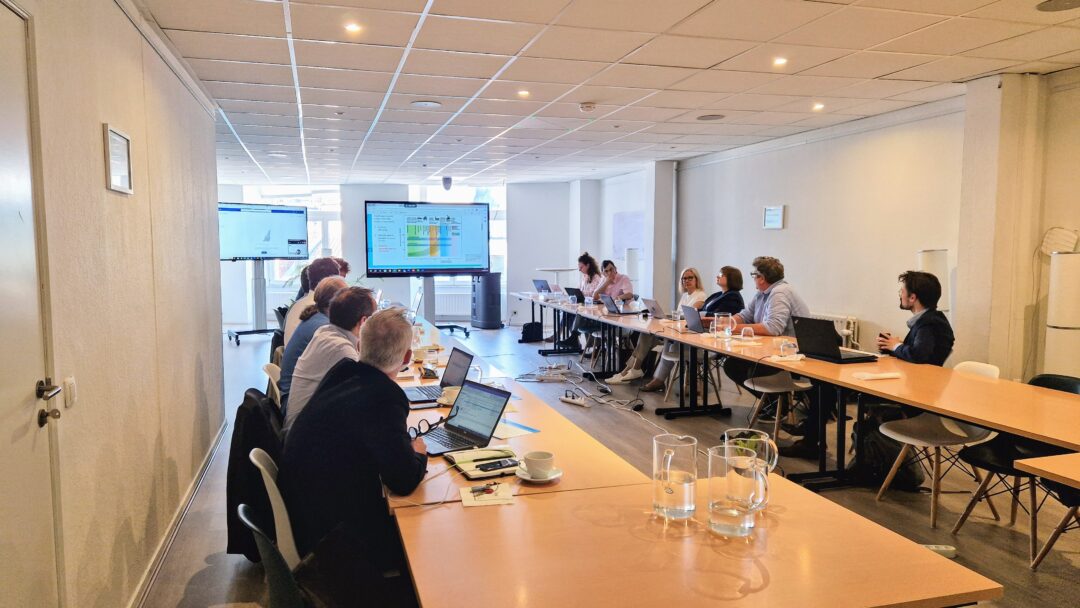What is the contribution that sustainable fuels can give to replace fossil fuels and their role in Europe’s future energy mix? This was the topic of the round table – organized by the SUNERGY initiative in the frame of the ongoing EU project SUNER-C [1] – on June 8 in Brussels.
The objective was to facilitate an open dialogue on the role of sustainable fuels, involving industry, research, academia, players bringing the societal perspective and representatives of the European Commission (DG Research & Innovation and DG Mobility & Transport).
Recent EU regulations have set clear targets that foster the demand and call for an accelerated development of sustainable fuels and related technologies. What is needed to reach these targets and accelerate progress, investments and cooperation in this field, including at the R&I level? What are the opportunities and challenges in the development of sustainable fuels in the EU and their role and complementarity in relation to other technology solutions?
Participants converged on the idea that a transition is happening and no technology solution should be favoured, but we need a mix of complementary technologies for different sectors and applications, always keeping the end users in mind and avoiding competition between renewable industries. Sustainable fuels are part of the mix: they are a reality and a needed element – not just a “niche” application – and can be a game changer for the EU’s energy mix, particularly for hard-to-abate sectors, such as aviation, maritime and long-distance and heavy-duty transport, where defossilization cannot be achieved solely through electrification. Additionnally, the technology and knowledge for sustainable fuels can be potentialized in furthering the manufacture of commodity chemicals in energy-intensive industries (e.g. cement, steel, glass, chemical). Sustainable fuels, as energy stored under chemical form, are also complementary – and not competing – with other storage technologies (including batteries) to cope with the intermittency of renewable energies. A big advantage of sustainable fuels consists on the fact that they can benefit from existing infrastructures, a factor that helps market penetration, limits costs and contributes to EU’s energy independency and sovereignty.
As highlighted by Jan Mertens, Chief Science Officer at ENGIE and also involved in SUNERGY and SUNER-C: “We need different technologies and molecules for different applications. Molecules – other than hydrogen – will be needed for processes where energy density is crucial, e.g. in industry, aviation, shipping, long term storage of energy, transport of energy over long distances. The EU is leading on the topic, from R&D over pilot to demo, but more effort and closer collaboration between academia and industry are needed to keep this lead.”
Industry is investing in this field in Europe, together with research, to develop different technological routes, with different timeframes and maturity levels: some are delivering now or are about to deliver, with pilot projects and plants – e.g. the 200M€, partly H2020-funded Steelanol plant in Belgium, inaugurated in December 2022 and expected to produce 80 million liters of advanced bio-ethanol yearly from CO₂ emissions captured from the Arcelor Mittal Ghent foundry. In parallel, we need to develop new generation technologies and more disruptive routes – e.g. for direct production of solar fuels from solar energy, which are expected to lead to a partially decentralized production by 2030.
The way forward
Currently there are considerable investments and a large number of projects on sustainable fuels in Europe, both at national and EU level. However, industry and research participants emphasised that current effort is scattered and we need a consistent framework to accelerate progress in the field, supporting integration along the value chain and across different dimensions – research, innovation, economic, political and social – and considering key issues such as: at which conditions can sustainable fuels become cost-effective? What’s needed in terms of jobs, re-education of workers? How can we balance different interests in the transition?
As stated by Gabriele Centi (Professor at University of Messina, President of the European Research Institute of Catalysis and SUNER-C member): “It’s clear that achieving the EU targets requires the inclusion of molecules and sustainable fuels. Simply extrapolating our current trajectory will not be enough: we need an acceleration, a decisive shift in the approach to successfully reach our goals.”
A dedicated EU large-scale R&I initiative on sustainable fuels would support this effort in a broader perspective – not only in the mobility sector but also on energy for process industry, and linking to chemicals -, complementing and working together with existing EU initiatives and partnerships. A dialogue on sustainable fuels in the EU needs to continue, involving all actors and dimensions, towards a common objective.
🔗 STRATEGIC R&I AGENDA: https://sunergy-initiative.eu/resources/strategic-ri-agenda/
🔗 INDUSTRY ENDORSEMENT LETTER: https://sunergy-initiative.eu/industry/
[1] (Coordination & Support Action funded by Horizon Europe, Grant Agreement No. 101058481).

